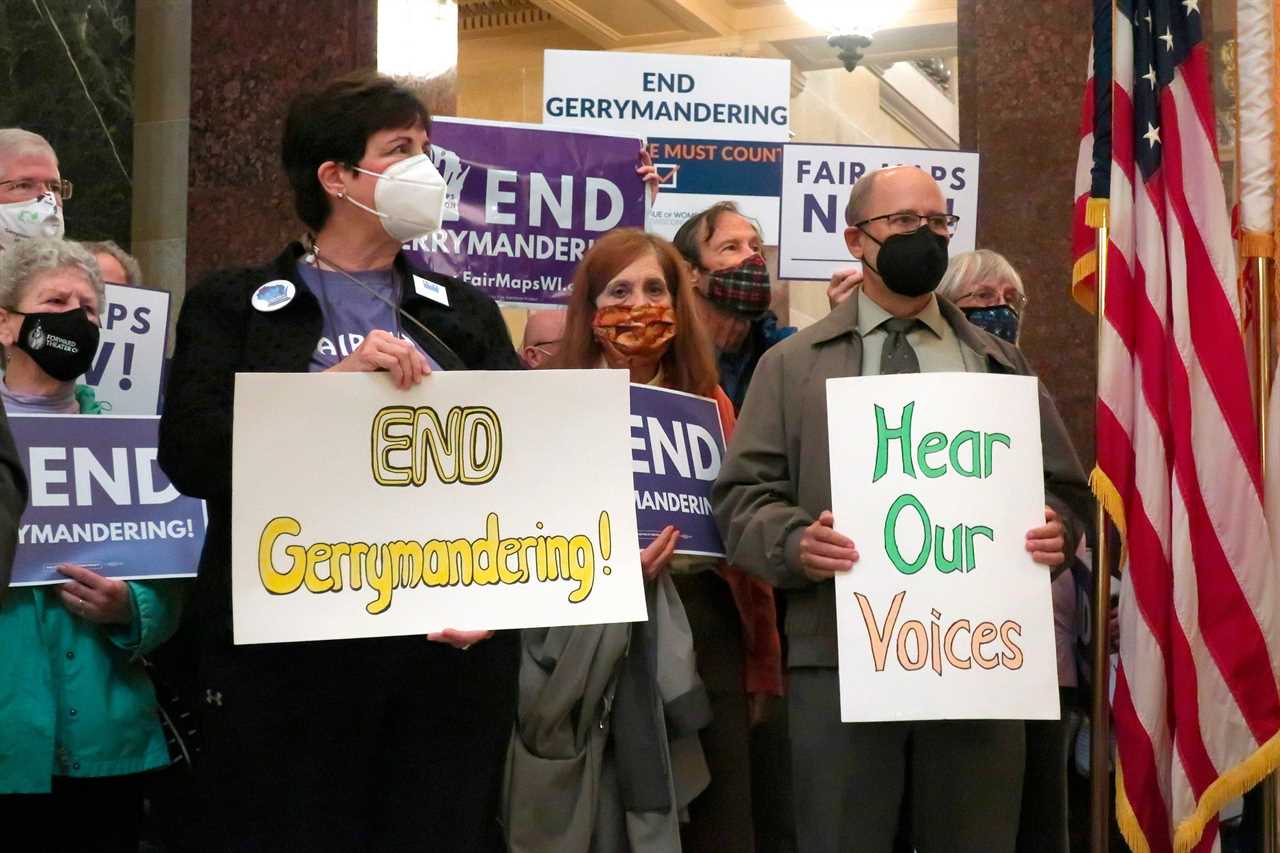
The latest redistricting cycle, where states redraw all Congressional and state legislative maps in light of new Census data, is well underway. It hasn’t been pretty — at least if you care about fair representation where voters, not the way the maps are drawn, determine who wins.
It’s already become clear that increasingly partisan state legislatures can’t be trusted to draw fair maps, and the U.S. Supreme Court — given a chance to intervene — made things worse by washing its hands of the issue. Congress, too, doesn’t look likely to step in to set uniform rules that prevent the worse abuses in redistricting.
So where is the solution going to lie? In the short run, at least, it will be up to state courts to protect the fairness of our democracy.
The process so far across the country shows why a remedy is so badly needed. Politicians in North Carolina, Wisconsin, Utah, and many other states are proposing maps that will skew the outcomes toward the current party in charge. Already, some observers have noted that gerrymandering by itself will likely allow Republicans to take over the House of Representatives. Skewed districts can minimize the power of minority groups. Gerrymandered maps can also quite literally allow a minority of voters to elect a majority of legislators. And they eliminate virtually all competitive districts between the political parties.
Two years ago, the U.S. Supreme Court’s conservative majority rejected a constitutional challenge to egregious partisan gerrymandering in the drawing of legislative maps by Republicans in North Carolina and Democrats in Maryland. Defying all logic, it said that federal courts cannot provide a legal rule for when partisanship has infected the redistricting process too much. But the Court then suggested that all was not lost, speculating that state law could provide a remedy for the worst abuses.
Given the aggressive partisan behavior of state legislators, it might seem absurd to hope for a state-level fix. But in fact, state constitutions are a source of robust voting rights protection — meaning state courts could have a crucial role to play.
Virtually all state constitutions have a clause granting state citizens the fundamental right to vote. (Only Arizona’s does not, but its courts have construed its state constitution as still essentially conferring the right to vote.) About half of the state constitutions declare that elections must be “free,” “free and equal,” or “free and open.” And a few state constitutions, such as Florida’s, even dictate rules that require fairness in redistricting.
The process will need to begin with lawsuits. Voting rights activists — including Democrats who generally are faring worse in these gerrymandered maps — will need to bring lawsuits against the maps in state courts, invoking the protections embedded within state constitutions. There is already precedent for this tactic: Both the North Carolina and Pennsylvania supreme courts relied on these clauses to strike down blatantly partisan gerrymanders in the last redistricting cycle, noting that when politicians pick their voters instead of the other way around, elections are no longer “free.”
So far, although there have been some challenges brought in state courts, Democrats and others are focusing on federal court litigation — including under the Voting Rights Act, especially given that many of the new maps will minimize the power of racial minorities. Unfortunately, however, the Supreme Court has made it harder for these claims to succeed, issuing restrictive rulings that allow partisan map drawers to use sophisticated algorithms to achieve their partisan ends while still ostensibly complying with rules that prohibit diluting minority voting rights.
But, at least so far, the Court has not tried to rein in state courts using their state constitutions. (There’s an argument, known as the “independent state legislature doctrine,” that suggests that under the U.S. Constitution, state constitutions cannot constrain state legislatures when crafting election rules; but though some justices have agreed with this concept, a majority of the Supreme Court has not yet endorsed that radical idea in a single case.) State courts therefore offer the strongest path available to challenge these maps. Voting rights advocates are missing a major source of protection if they fail to invoke these state constitutional provisions when challenging egregious partisan gerrymanders.
Republicans have drawn much of the criticism in this round, but they aren’t the only bad actors in the gerrymandering game: Democrats in Illinois crafted a congressional map that gerrymanders the state to eliminate two Republican-held seats. The map caused Rep. Adam Kinzinger, a moderate Republican and one of former President Donald Trump’s most outspoken critics among the GOP, to announce he would not run for re-election, knowing he would be unlikely to win a primary against fellow Republican Rep. Darin LaHood, who was drawn into the same district. So Republicans could similarly use Illinois’s constitution to challenge an unfair map.
If litigants do not robustly invoke state constitutions in their challenges, or if state courts follow the U.S. Supreme Court and also refuse to police partisan gerrymandering, then there is nothing to prevent the powerful from entrenching themselves in power for at least the next ten years. Democracy itself — where the voters themselves determine the winners through a fair and equal process — is at stake.
----------------------------------------
By: Joshua A. Douglas
Title: Opinion | Why Gerrymandering Needs to Land in State Courts
Sourced From: www.politico.com/news/magazine/2021/11/24/gerrymandering-state-courts-523270
Published Date: Wed, 24 Nov 2021 04:30:05 EST






